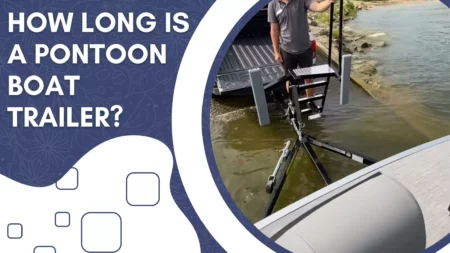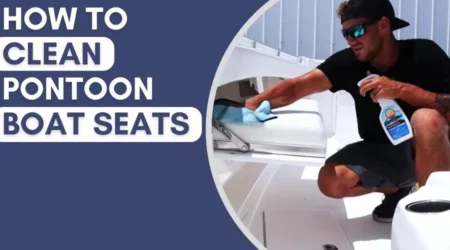Pontoon boats are a type of vessel that many love for their combination of comfort, affordability, and versatility.
While pontoon boats are designed to be buoyant and stable, there are several scenarios and conditions in which a pontoon boat can be at risk of taking on water and sinking.
But despite their popularity and general safety, you may wonder, can pontoon boats sink? The answer is yes; pontoon boats can sink.
From improper loading to natural disasters, certain risks come with owning and operating a pontoon boat, and it is essential to understand and prepare for these risks.
With the proper maintenance and safety precautions, however, the chances of a pontoon boat sinking can be greatly reduced.
How pontoon boats are designed to stay afloat
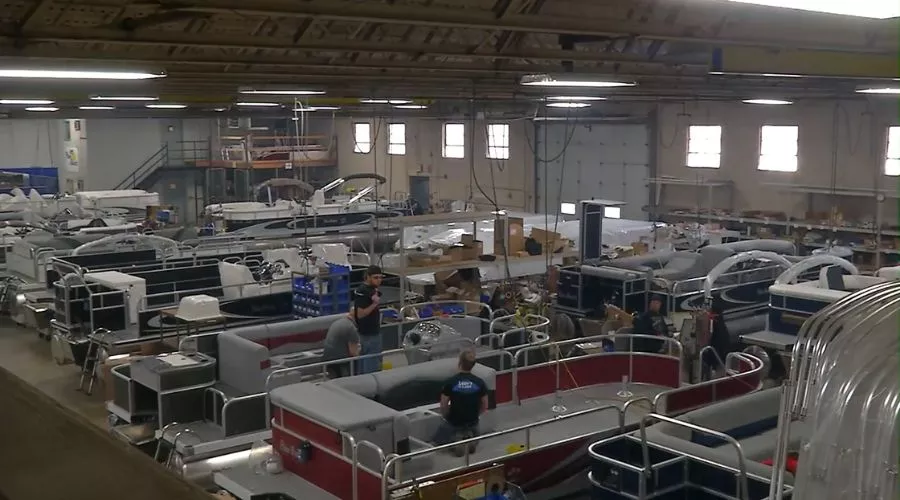
Before I explain how pontoon boats can sink, it is helpful to know how they are designed to stay afloat.
First and foremost, it is worth noting that pontoon boats are designed to be stable and not sink. This makes them an excellent option for both beginners and experienced boaters looking for a safe and dependable vessel.
That being said, the primary mechanism that keeps a pontoon boat afloat is its design. While pontoon boats come in various models and designs, they are all generally constructed using pontoons.
Pontoons are large, long, air-filled tubes that create buoyancy as they ride on the water.
This design helps keep pontoon boats afloat and makes them highly stable, making them ideal for recreational activities such as fishing or taking passengers out for a cruise.
Reasons Why Do Pontoon Boats Sink?
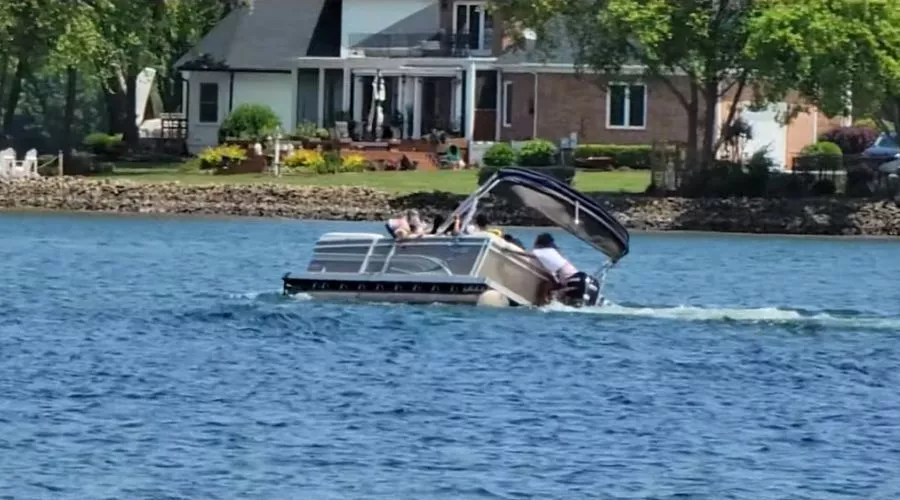
A few common scenarios can cause a pontoon boat to sink.
As I have discussed, pontoon boats are generally built to be highly stable and stay afloat.
However, several conditions may cause a pontoon boat to sink.
The first and most common scenario is water in the tubes.
The pontoons on a pontoon boat rely on air pressure to stay afloat. If the pontoons on a pontoon boat lose air pressure, they will start to sink into the water.
While air pressure can be lost due to natural wear and tear (the average lifespan of a pontoon is five to 10 years), it can also be caused by the boat taking on water.
If a pontoon boat takes on water, the pontoons will lose air pressure and sink.
If the pontoon boat takes on too much water, it will sink. To prevent a pontoon boat from sinking due to water in the tubes, it is important to know how to load your boat properly.
a) Water in Tubes
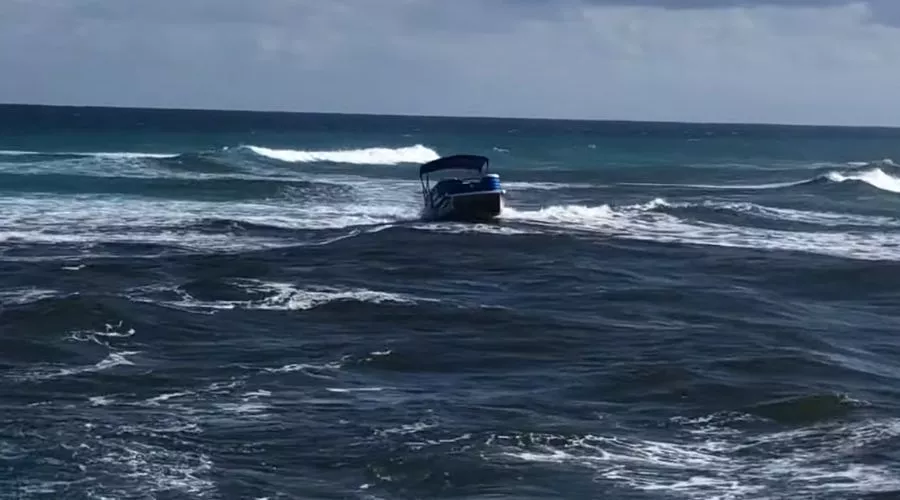
Loading a pontoon boat is an essential and often overlooked aspect of maintaining it properly.
When loading a pontoon boat, it is essential to distribute the weight evenly from front to back.
This will ensure that the boat remains balanced and does not tip over. If one part of the boat is too heavy, it can cause the boat to sink unevenly and cause the pontoons to take on water.
If the pontoons take on too much water, it can cause the pontoon boat to sink. Another significant aspect of loading a pontoon boat is how you pack your gear.
When loading your gear onto the boat, secure it tightly and place it as low as possible.
If your gear is loose or placed too high, it could shift as you navigate and cause the pontoons to take on water.
b) Incorrect Speed
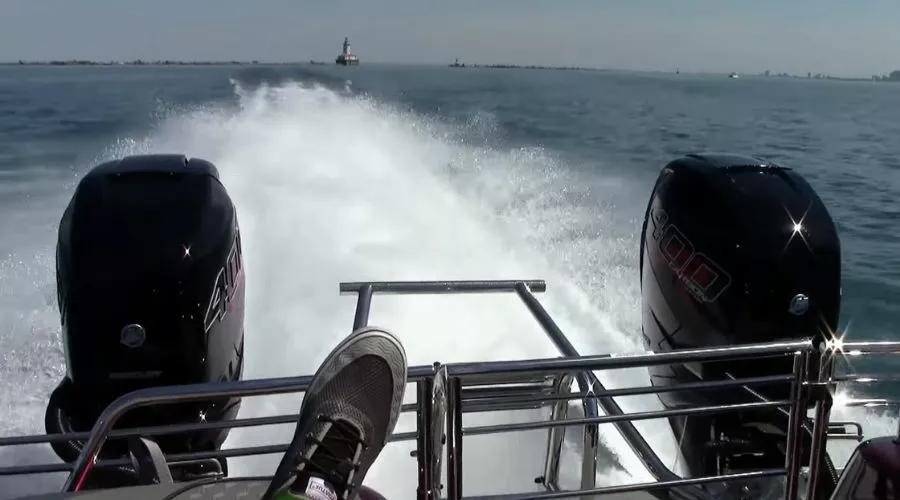
Another scenario that can cause a pontoon boat to sink is incorrect speed. While it may seem odd, a pontoon boat can take on water if driven too slowly.
The water pressure around the pontoons on a pontoon boat will increase as the boat’s speed decreases.
If a pontoon boat is being driven at a slow speed and too much water builds up around the pontons, it will cause the floats to take on water and sink the boat.
This can occur in rivers, lakes, and other bodies of water where there is a current or water flow.
To prevent this, be sure to drive your boat at the correct speed to balance the water pressure around it.
c) Severe Conditions
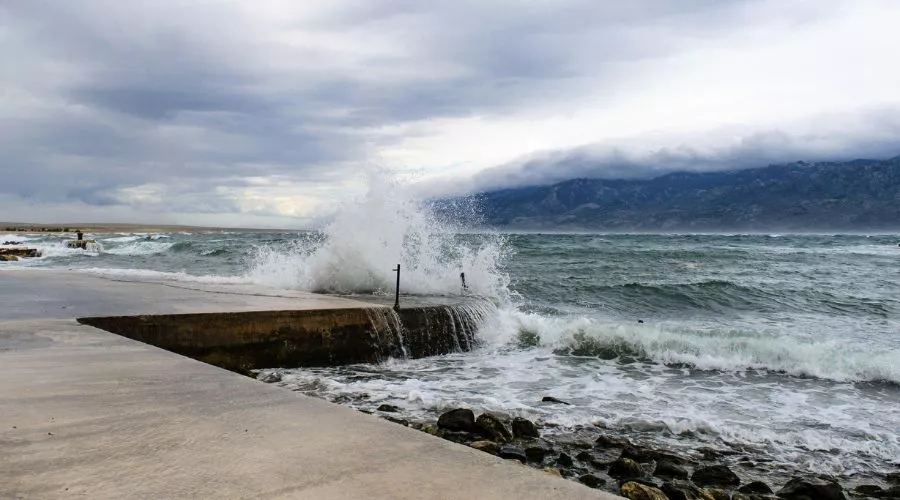
While pontoon boats are generally built to withstand various conditions, they can still sink. Severe weather, such as hurricanes and tornadoes, can cause a pontoon boat to fall.
Strong winds and heavy rains can push large amounts of water into the boat, causing the pontoons to take on water and the ship to sink.
In addition to weather conditions, natural disasters such as earthquakes can also cause pontoon boats to sink.
A pontoon boat can quickly become trapped in the water and sink if a river or lake has been flooded.
To prevent your pontoon boat from sinking due to severe conditions, it is important to maintain regular maintenance and prepare for adverse weather and natural disasters.
d) Weight on the Boat
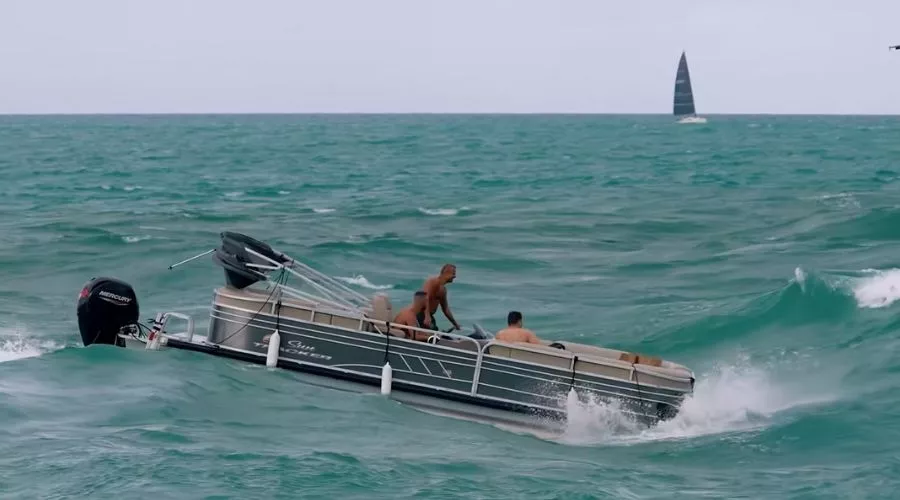
Another common cause of a pontoon boat sinking is the amount of weight on the boat. If a pontoon boat is overloaded and the combined weight of the people, gear, and engine is more than the boat can handle,
it can cause the pontons to take on water and sink. To prevent a pontoon boat from sinking due to weight,
it is important to know the weight capacity of your boat. It is also important to know what weight you put on your boat and ensure it is distributed evenly.
e) Incorrect Motor
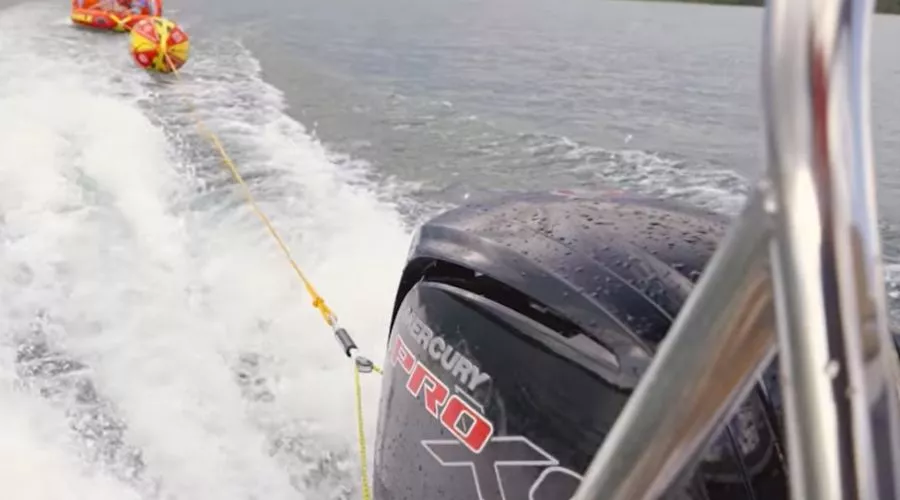
Another scenario that can cause a pontoon boat to sink is the type of engine being used.
While most pontoon boats can use many different types of engines, some may cause the ship to sink.
For example, outboard motors that are too big for a pontoon boat can cause it to sink.
It is important to know the recommended engine size for your pontoon boat and make sure to use an engine that is compatible with your boat and within the recommended size.
How to prevent a pontoon boat from sinking
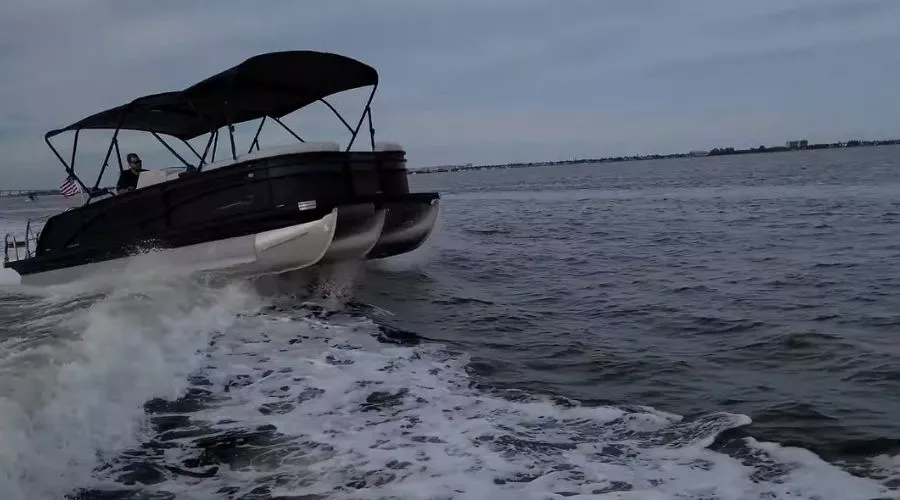
While a pontoon boat can sink, several steps can be taken to prevent this from happening.
As you prepare to use your boat, follow all maintenance, inspection, and safety procedures. In addition to properly maintaining your boat, there are specific steps you can take to ensure your ship does not sink.
First, be sure to load your boat correctly. Next, drive at the correct speed. And finally, be sure you are using the right engine size.
With these precautions in place, you can help to reduce the chances of your pontoon boat sinking.
Pontoon boat safety tips
Beyond taking the proper precautions to prevent your pontoon boat from sinking, it is crucial to be aware of general safety tips.
When using your pontoon boat, you must be aware of your surroundings and watch for potential hazards.
When traveling on water, there are many potential hazards, such as rocks, other boats, and debris.
Therefore, keeping a safe distance from other boats and being mindful of potential dangers is vital.
In addition to being aware of your surroundings, wearing a life jacket is necessary when operating a pontoon boat.
FAQS
Is Sinking the Same as Capsizing?
What are the chances of a pontoon boat sinking?
One way to prevent your pontoon boat from sinking is to make sure it is properly maintained. This includes keeping the pontoons free of debris and ensuring that any fittings or hardware are securely tightened and in good condition. Additionally, it’s important to have adequate flotation devices on board in the event of an emergency.




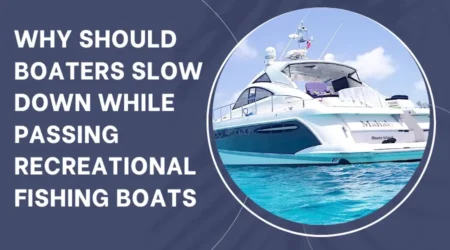

![What Is The Best Way To Avoid Overloading Your Boat?-[Guide 2023]]](https://theboatingbuds.com/wp-content/uploads/2022/03/Best-way-to-overload-boat.webp)
